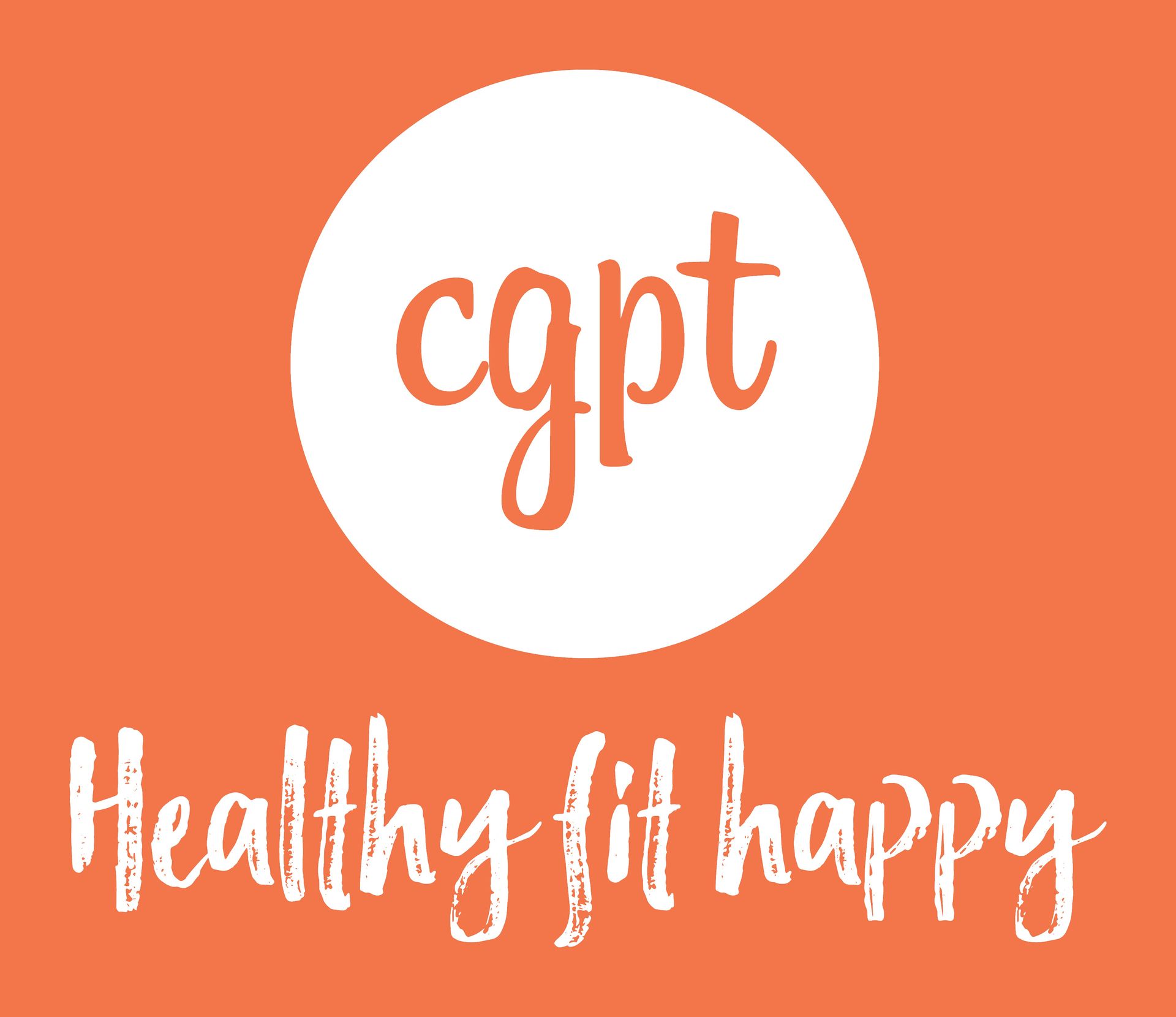August 12, 2025
Your First 12 Weeks Back: A New Mum’s Strength Training Roadmap The first few months after having a baby are a whirlwind - a mix of love, fatigue, healing, and adjustment. Between sleepless nights, feeding schedules, and learning to care for your new little human, finding time (and energy) for yourself can feel impossible. But rebuilding strength after pregnancy isn’t about “bouncing back.” It’s about reconnecting with your body, rebuilding confidence, and laying a strong foundation for the years ahead. At CGPT in Hawthorn, we help new mums move safely and confidently through those early postpartum months, creating space for strength, calm, and energy - one small, achievable step at a time. The Postpartum Transition: A Foundation, Not a Finish Line Once your healthcare provider has cleared you for exercise - usually around six weeks postpartum, though timing can vary - the focus shifts from recovery to gradual rebuilding. Pregnancy and birth bring incredible changes to the body: the abdominal wall stretches, the pelvic floor carries extra load, and hormonal shifts affect everything from joint stability to energy regulation. Strength training, done gently and progressively, helps your body restore balance. It’s important to think of this as a journey of reconnection rather than recovery - learning how your body now moves, feels, and responds, and strengthening it from the inside out. Phase 1: Reconnection (Weeks 1–4 Post-Clearance) The early weeks after clearance are about awareness, not intensity. It’s tempting to jump straight into workouts, but the foundation for safe, effective strength training begins deep within the core. Pelvic Floor and Deep Core Activation The pelvic floor and deep abdominal muscles form the base of your strength system. Gentle reactivation - often through guided breathing, posture awareness, and low-load core engagement - helps restore stability and prevent future issues like leakage or prolapse. Research shows that targeted pelvic floor exercises after childbirth significantly improve muscle strength, bladder control, and long-term pelvic health (Bø et al. 2015). At this stage, even small moments of connection - mindful breathing, gentle mobility work, short walks - help reintroduce movement safely and build consistency without pressure. Phase 2: Functional Strength Foundations (Weeks 5–8 Post-Clearance) Once you’ve reconnected with your core and feel stable, the next focus is rebuilding functional strength - the kind that supports everyday life as a mum. This is about movements that mirror daily tasks: carrying the baby, lifting the pram, or picking up toys from the floor. Functional strength training retrains your body to move efficiently and confidently while reducing strain on the back and joints. Studies show that progressive, low-impact strength exercises postpartum can restore muscle balance, improve posture, and reduce lower back pain - one of the most common complaints among new mothers (Gordon et al. 2019). Just as importantly, this phase helps you reclaim ownership of your body. Strength becomes less about appearance and more about capability - being able to carry, lift, and move with ease and confidence. Phase 3: Energy and Endurance (Weeks 9–12 Post-Clearance) By this stage, many new mums start feeling more physically capable - though energy levels still fluctuate due to sleep disruption, feeding schedules, and hormone changes. This is the time to gently reintroduce variety and challenge, within reason. The goal is not intensity, but consistency. Your training might include movements that combine strength, balance, and coordination - always guided by how your body feels day to day. Even moderate resistance training has been shown to increase energy and reduce fatigue, thanks to improvements in circulation, mood, and muscular endurance (Puetz et al. 2006). These benefits extend far beyond the gym, making daily life - from baby-carrying to pram-pushing - feel easier. Common Mistakes New Mums Make It’s natural to feel eager to return to your “old self,” but a few common missteps can set progress back: · Rushing the process – Jumping straight into high-intensity workouts or running before rebuilding pelvic stability can increase the risk of injury or prolapse (Davenport et al. 2019). · Ignoring rest – Recovery is where strength develops. Skipping rest days in favour of doing more often leads to fatigue rather than progress. · Comparing to others – Every pregnancy, birth, and recovery journey is different. Comparing timelines (especially on social media) adds unnecessary pressure. · Neglecting core and pelvic health – Without re-establishing deep stability, other exercises become less effective and potentially unsafe. The key is patience. Strength training postpartum isn’t about doing more - it’s about doing what matters most, with intention. Energy Management: Training When Life Is Unpredictable One of the biggest challenges for new mums isn’t motivation - it’s energy. With disrupted sleep and unpredictable routines, some days it feels like your tank is empty. Here’s the good news: you don’t need perfect conditions to train effectively. Strength training can actually boost energy, thanks to its positive effects on endorphins, circulation, and stress hormones (Dishman et al. 2006). If you only have 20 minutes, that’s enough. Consistency - even in small doses - creates momentum and helps rebuild strength sustainably. It also helps to rethink what “training” means. Sometimes, it’s a full session at CGPT. Other times, it’s a stroller walk, a gentle stretch, or mindful breathing while the baby naps. Each moment you move with awareness counts. The Mental Health Benefits: More Than Muscle Beyond the physical transformation, strength training can be a lifeline for mental wellbeing during the postpartum period. Research consistently shows that exercise reduces symptoms of postpartum depression and anxiety, boosts mood, and improves sleep quality (Daley et al. 2007; Poyatos-León et al. 2017). Strength training also provides structure, autonomy, and self-efficacy - feelings that can be difficult to access in the early chaos of motherhood. That sense of “I can do this” extends beyond the gym into every aspect of life. At CGPT, we often hear new mums describe their sessions as a mental reset - an hour where they’re not “just surviving,” but reconnecting with themselves. Why CGPT Is the Right Partner The early postpartum period is delicate, and every woman’s recovery is different. That’s why a private, supportive environment matters. At CGPT, we tailor each program to your stage of recovery, your energy levels, and your goals - no pressure, no judgement, no unrealistic expectations. Our private setting means you can move freely without comparison, ask questions openly, and train safely under the guidance of experienced professionals who understand postpartum physiology. Whether you’re six weeks or six months postpartum, the focus is the same: helping you rebuild confidence, stability, and strength - physically and emotionally. Reclaiming Strength, Your Way Your body has done something extraordinary. Strength training isn’t about undoing that - it’s about supporting it. The first 12 weeks back are your roadmap to feeling capable again: reconnecting with your core, rebuilding functional strength, managing energy with compassion, and rediscovering joy in movement. You don’t have to do it perfectly. You just have to start - gently, consistently, and with support that understands exactly where you are. 📧 Email Andrea today at andrea@chrisgympt.com to learn how we can design a safe, personalised strength training program that fits your new rhythm of life. Because this isn’t about getting your old body back - it’s about building your new strength forward. References · Bø, K, et al. 2015, Pelvic floor muscle training for the prevention and treatment of urinary and faecal incontinence in antenatal and postnatal women, Cochrane Database of Systematic Reviews, Issue 12. · Daley, AJ, et al. 2007, Exercise for postpartum depression: a randomised controlled trial, Journal of Psychosomatic Research, 63(2), pp. 103–109. · Davenport, MH, et al. 2019, Returning to running postnatal: guidelines for medical, health and fitness professionals managing this population, British Journal of Sports Medicine, 53(18), pp. 1141–1146. · Dishman, RK, et al. 2006, Exercise and mental health, Sports Medicine, 36(3), pp. 107–116. · Gordon, B, et al. 2019, Functional exercise improves physical and psychological health in postpartum women, Women’s Health Issues, 29(2), pp. 141–148. · Puetz, TW, et al. 2006, Effects of chronic exercise on feelings of energy and fatigue: a quantitative analysis, Psychological Bulletin, 132(6), pp. 866–876. · Poyatos-León, R, et al. 2017, Exercise and postpartum depression: a systematic review and meta-analysis, Archives of Women’s Mental Health, 20(3), pp. 349–362.




